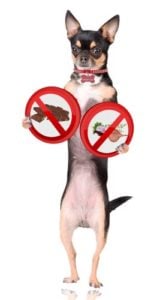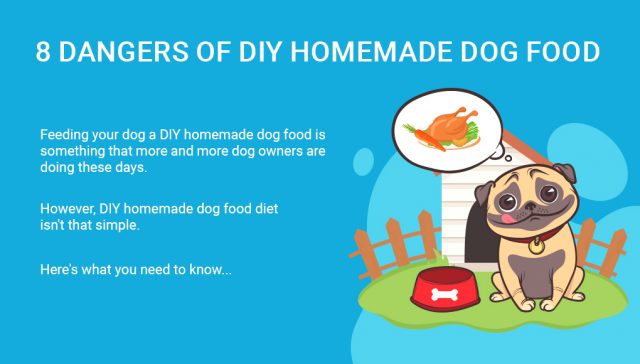
Table of Contents
If you're cooking for your dog, there are homemade dog food dangers that you need to look out for.
It's understandable why you do home-cooked meals for your Fido. I do it too!
One, they could be cheaper.
Two, they could be more hygienic (because, at least, you know the process.)
And three, shady dog food manufacturing practices are multiplying everywhere (those with fake “Made in the USA” labels.)
Using homemade dog food recipes is a way to let your pooch enjoy the finer things in life, particularly high-quality and delicious meat.
However, homemade dog food isn’t risk-free either.
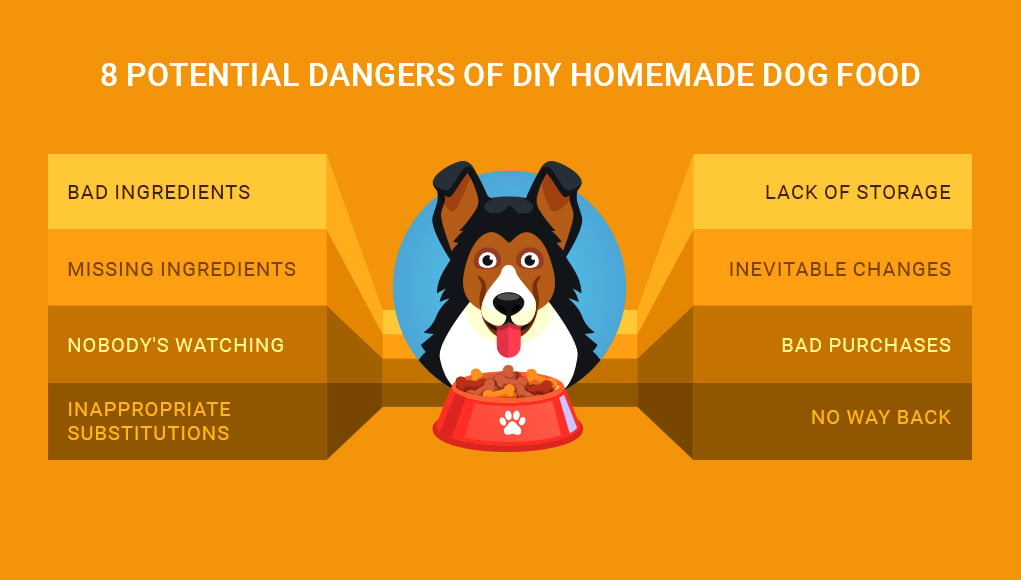
Homemade Dog Food Dangers: What Experts Have to Say
The UC Davis School of Veterinary Medicine published a study in 2013.
They reviewed about 200 recipes from reputable veterinary textbooks, certified veterinary nutritionists, pet-care books, and websites.
The result?
About 95% of the examined recipes turned out to be lacking in the necessary levels of at least one essential nutrient.
On top of that, more than 83% of the recipes had multiple nutrient deficiencies.
“Some of the deficiencies, particularly those related to choline, vitamin D, zinc and vitamin E, could result in significant health problems such as immune dysfunction, accumulation of fat in the liver and musculoskeletal abnormalities.”
-Jennifer Larsen, UC Davis Professor/ Lead Author
Another study in 2014 by São Paulo State University evaluated how pet owners prepared homemade food for their dogs.
Here, they gave vet-approved dog food recipes to about 59 dog owners.
What they concluded was undeniable.
The recipes were good.
The vets had specific instructions on how to prepare them properly.
But the owners didn't follow them enough to make it a healthy meal for their dogs.
If that's not enough, there's another 2017 study that evaluated more DIY homemade dog food recipes found online.
They also concluded that these home-cooked diets exposed pets to nutrient deficiencies.
There are still a lot of journals, research, and studies you can find online that evaluate the benefits of home-cooked recipes for dogs.
So, what's the bottom line? What seems to be the problem?

Lack of Expertise and Knowledge
Considering the studies above, it's clear that it's not the home-cooked meal that's bad.
But rather, it's the lack of expertise and knowledge in preparing them.
Pet owners are unaware of what type of nutrients are being left out in these meals.
Essential dog supplements such as fish oil are also rarely used.
Some guardians don't even know how to monitor the dog for nutrient deficiencies to make up for vitamins, minerals, and macro-nutrients.
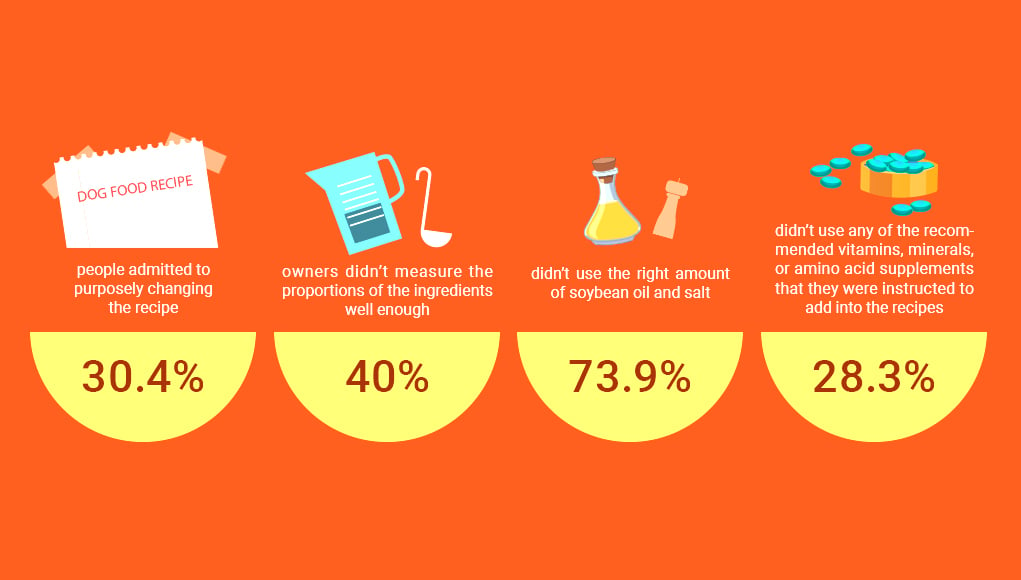
Is it worth giving homemade dog food to our pooch if you're not 100% into following the instructions and measurements?
Admittedly, I was one of those clueless dog owners before writing this article.
I thought I was doing just fine, cooking these meals for my fur babies!
But after reading hundreds of peer-reviewed studies and journals, I've come up with these 8 potential homemade dog food dangers that might happen when cooking for your Fido.
But more importantly, I've also included best practices to avoid these risks
So, read on!
ALSO READ: 20 Pros and Cons of Homemade Dog Foods
8 Homemade Dog Food Dangers You Should Avoid
1. Bad Ingredients
Unintentionally, you may be using a dog food recipe that includes unsuitable ingredients.
Some homemade dog food recipes online include ingredients that no dog should consume!
Or, if they can, it should only be very little, yet the recipe mentions a dangerous amount.
I'm not going to name-drop, but I found extreme examples like:
- give your dog large amounts of garlic as a way to prevent intestinal worms
- feed your pup avocado “because it’s healthy for people.”
These are non-verbatim, but you get the idea.
Usually, uninformed owners assume that dogs can eat almost everything because they have “stronger stomachs” than us.
For some, that might be the case.
But not all the time.
Many human foods are considered toxic for canines, and they should never, ever ingest in any way.
These are food items you should be careful about when preparing your dog’s next dinner.
ALSO READ: 9 Human Foods Dogs Can’t Eat and Why (Based on Studies)
2. Missing Ingredients
You may be using a dog food recipe that’s missing some key ingredients.
This is very common too.
While you'd want to avoid certain ingredients, you have to remember to include essential ingredients in your dog’s meal.
I made this mistake before as I only used to give my dogs their meal itself.
Apparently, I should be mixing in vitamins, minerals, and supplements before feeding them!
My colleague, Samantha, has previously explained which supplements are required for homemade dog food meals.
She also included in the article how to use them safely.
Another big mistake some dog owners make: avoiding organ meats like liver or heart.
Remember, just because you don't like the ingredient doesn't mean your dog won't need them.
Doing this intentionally can lead to many deficiencies and health issues for your dog, according to studies.
3. Nobody's Watching
Homemade dog food recipes have no quality control standards or inspections.
I know. “Quality control” doesn’t have a nice ring to it.
Anyone involved in the manufacturing of pet foods, medicine, or other products requires quality control.
They're also strictly monitored by agencies like the FDA and USDA.
We don't have this at home!
The only quality control you'll probably go through is your dog's picky palate.
However, quality control is essential to ensure safe, hygienic, and well-balanced food.
4. Inappropriate Substitutions
Some of the mistakes dog owners make when preparing pets' meals are completely unintentional.
However, many others are done on purpose.
Some pet owners substitute ingredients.
Although well-intentioned, this is likely out of ignorance.
For example, substituting one ingredient with another may seem innocent enough.
The two ingredients are similar anyway!
In our eyes, maybe. But this may not be for a dog’s body.
When you get a dog food recipe from a reputable source, you must follow the recipe to the T.
If you need to substitute, make sure you research, or better yet, consult with a canine nutritionist.
And another tip: double-check the measurement, ingredients, safety, and nutritional benefits of a recipe with at least 2-3 other reputable sources before making it.
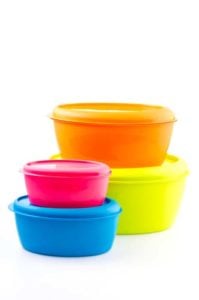
5. Lack of Storage
This was one of my problems too. Lack of storage!
When preparing DIY homemade dog food, you'll likely be making large quantities of it.
After all, you don’t want to cook it every day.
However, with larger quantities come some potential storage problems.
Not only could they take up significant space in your fridge, but contamination is possible too.
Ensure that you're using a special dog food storage container and that you're storing it properly.
Protect the food from freezer burn; otherwise, it will be a waste already.
Frozen food can be consumed for up to 6 months.
Also, make sure that your dog finishes the portion you're serving him in one sitting.
6. Inevitable Changes
Sometimes, we're already used to doing the same thing repeatedly that we thought we could do a shortcut.
With time, you may be changing the recipe without intending to.
And not just the ingredient but how you prepare the food too.
Chances are, in time, you’ll unintentionally change the way you prepare the meals.
Some pet owners admit they often start making it faster and preparing the ingredients more instantly.
(Guilty as charged!)
If you return to the original recipe one day, which I did, you’ll notice some differences from what you’re currently doing.
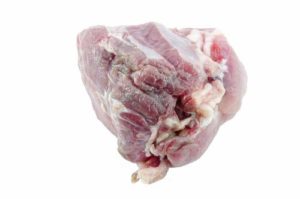
7. Bad Purchases
The meat quality you’re using is essential for your dog's long-term health.
Yes, very cheap commercial dog food is rarely made of high-quality ingredients.
But that’s a problem that you must be wary of when cooking your dog’s dinner.
It's time-consuming to be picky about the ingredients you'll use in your dog's meal, but something you shouldn't skip.
You may accidentally purchase low-quality ingredients that won't benefit your dog's health.
8. No Way Back
Pets that love homemade dog food may start disliking commercial dog food.
This is not really dangerous.
However, it could be potentially annoying to pet owners.
Your dog might get used to homemade dog food so much that they'll refuse commercial dry kibble.
Most dogs are ravenous, but some breeds, in particular, can be picky eaters.
Fortunately, this is relatively easy to avoid by feeding your dog some commercial dog food from time to time from an early age.
FAQs about Feeding Your Dog a Homemade Diet
If you still have lingering questions about the homemade diet you feed your pup, the following FAQs should clear them up.
Why Is Homemade Dog Food Bad?
One of the biggest risks of homemade diets is that you won't include the right ingredients.
You may use low-quality ingredients instead of whole foods or forget to include something a board-certified veterinary nutritionist would include.
Do Vets Recommend Homemade Dog Food?
No, most vets don't recommend making dog food yourself because of the risk that you will forget essential nutrients and other health concerns.
There are some exceptions, and your vet may suggest homemade foods to meet your dog's nutritional needs if they are precise.
Do Dogs Live Longer on Homemade Dog Food?
Some research found that adult dogs who eat homemade food live longer.
However, this depends on your dog's health and your vet's recommendations for your dogs' food.
Always follow veterinary advice.
Homemade Dog Food Dangers: Final Thoughts
Those are 8 possible homemade dog food dangers you must know for your Fido's safety.
Luckily, these dangers can be easily countered with due diligence and best practices.
Ultimately, if you're thinking of switching your dog's diet 100% to homemade, secure your vet's approval first.
While there are scenarios where homemade food is better, that's not always the case.
And also, as Professor Larsen of UC Davis advised:
“Homemade food is a great option for many pets, but we recommend that owners avoid general recipes from books and the Internet and consult a board-certified veterinary nutritionist. These specialists have advanced training in nutrition to help formulate customized and nutritionally appropriate recipes.”
Don't be discouraged in giving your dog the best meal you can give him.
Consult the experts in the proper avenue, and your dog should be fine.
Related Articles:
- 13 Balanced Homemade Dog Food Recipes
- Switching to Homemade Dog Food Diet: 3 Things to Know
- Recipe: Balanced Homemade Dog Food with Ground Beef
- 9 Human Foods Dogs Can't Eat and Why (Based on Studies)
- 6 Nutritional Guidelines for Safe Homemade Dog Food Cooking



